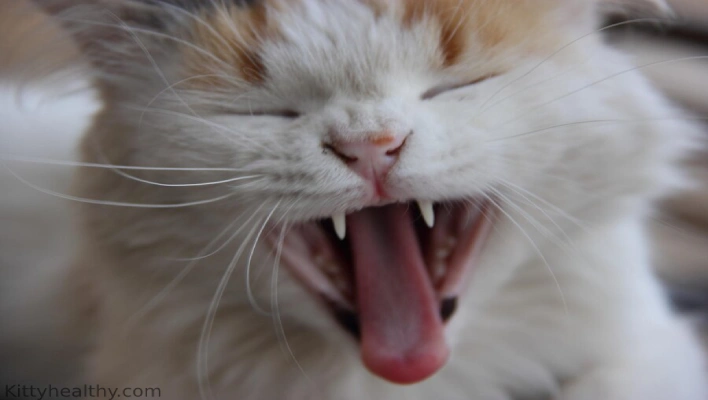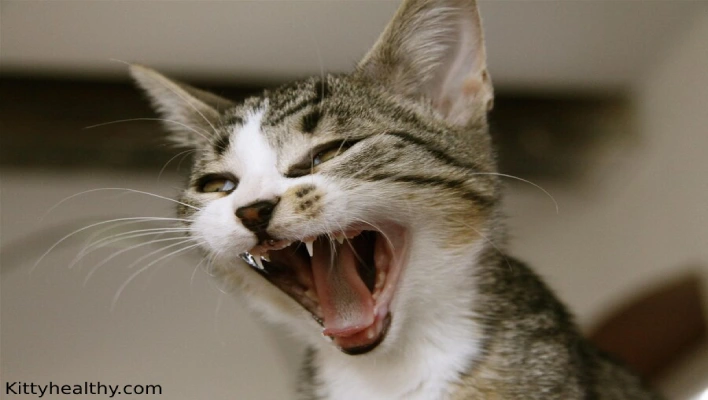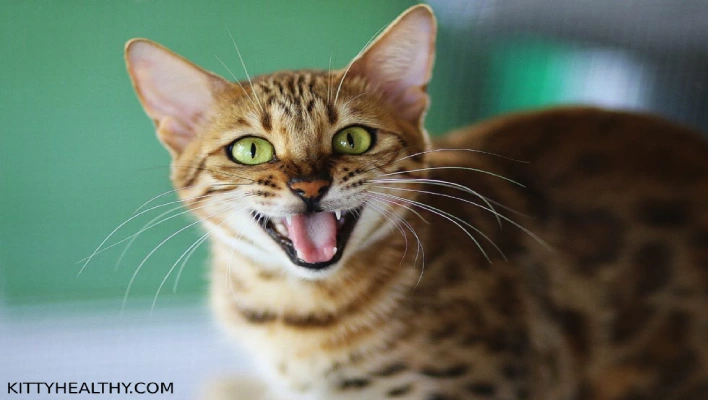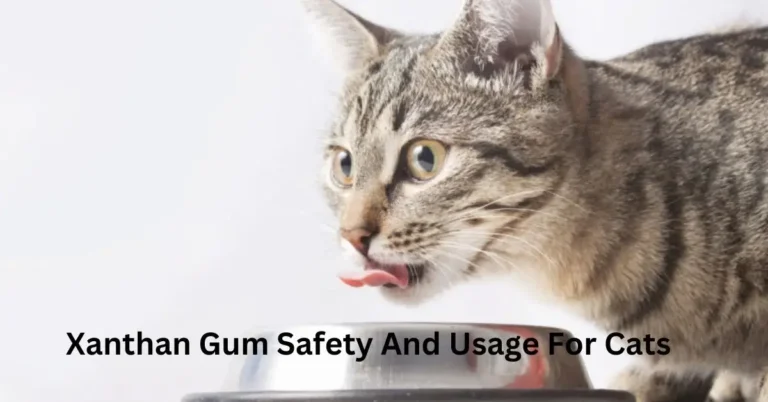Savannah Cat Teeth: Types, Caring Tips, Whitening, Importance
Savannah cats are dazzling animals that join the colorful excellence of the African serval with the homegrown appeal of the house cat. These half-breed cats are known for their enormous ears, long legs, and spotted coats, yet did you have any idea that they additionally have particular teeth?
In this blog post, we will investigate the highlights, works, and care of Savannah cat teeth, and how you can keep your shaggy companion’s grin solid and cheerful.

Types of Teeth in a Savannah Cat
There are several types of teeth in Savannah cats:
| Types of Teeth | Function | Description |
|---|---|---|
| Incisors | Grasping and grooming | Small front teeth for biting into food and maintaining oral hygiene |
| Canines | Gripping and tearing | Elongated and sharp teeth for hunting and killing prey |
| Premolars | Shearing and slicing | Teeth behind the canines for cutting and chewing food |
| Molars | Grinding and crushing | Teeth at the back of the mouth for breaking down food into smaller pieces |
See Also: Siamese Cat
What are Savannah’s cat teeth?
These teeth result from the serval and domestic cat genetic mix. Savannah cats inherit some of the dental traits of both their parents, such as:
Number of teeth: Savannah cats have 30 teeth, the same as domestic cats. This is less than the 32 teeth servals have, as savannah cats lack the upper premolar servals used for shearing meat.
Size and shape of teeth: These teeth are larger and sharper than domestic cat teeth, especially the canines and the carnassials (the large teeth at the back of the mouth used for slicing meat). This is because savannah cats retain some of the hunting and feeding adaptations of the serval, which has powerful jaws and teeth for catching and killing prey.
Color and condition of teeth: These teeth are usually white and healthy as long as they are properly cared for. However, some savannah cats may have yellow or brown stains on their teeth or signs of tartar, plaque, or gingivitis. This is because Savannah cats may have a higher risk of dental problems than domestic cats due to their larger teeth and tendency to chew hard or inappropriate objects.

See Also: American Bobtail Cat
Why are Savannah’s cat teeth important?
Savannah cat teeth are important for several reasons, such as:
Eating and nutrition: These teeth are essential for chewing and digesting food, providing the energy and nutrients your cat needs to stay healthy and active. Savannah cats have a high protein requirement, and their teeth help them break down meat and bones efficiently.
Communication and expression: Savannah cats also use these teeth to communicate and express themselves with humans and other animals. Savannah cats may show their teeth to indicate emotions such as happiness, curiosity, fear, or aggression. For example, a savannah cat may bare its teeth in a grin when content or in a snarl when angry or threatened.
Grooming and hygiene: Savannah cats use their teeth to clean their fur and skin and to remove parasites or debris, involving these teeth in grooming and hygiene. Savannah cats may also use their teeth to groom their human companions as a sign of affection or bonding.

See Also: American Curl Cat
How to care for your Savannah cat’s teeth?
Savannah cat teeth require regular care and attention, like any other cat’s. Here are some tips to keep your Savannah cat’s teeth healthy and clean:
Brush your cat’s teeth daily: Brushing your cat’s teeth daily is the best way to prevent dental problems, such as tartar, plaque, gingivitis, or tooth decay. Use a soft-bristled toothbrush and cat-friendly toothpaste, and gently massage your cat’s teeth and gums in circular motions. Start brushing your cat’s teeth when it is young, and make it a positive and rewarding experience for your cat.
Provide your cat with dental treats and toys: Dental treats and toys can help your cat clean its teeth, massage its gums, and satisfy its natural urge to chew. Choose treats and toys designed for dental health, such as abrasive textures, enzymes, or natural ingredients that can reduce plaque and tartar.
Check your cat’s teeth regularly: Check your cat’s teeth regularly for any signs of problems, such as redness, swelling, bleeding, bad breath, loose or broken teeth, or difficulty eating. If you notice these signs, take your cat to the vet as soon as possible, as dental problems can lead to pain, infection, or systemic diseases.
Take your cat to the vet for dental check-ups and cleanings: Take your cat to the vet for dental check-ups and cleanings at least once a year or more often if your cat has a history of dental problems. Your vet can examine your cat’s teeth and gums and perform professional cleaning and scaling to remove any tartar or plaque that may have accumulated. Your vet can also advise you on the best dental care products and practices for your cat.

FAQs
Savannah cats may bite due to playfulness, teething, or stress. Establishing trust through gentle interactions and proper training can minimize biting behavior.
Savannah cats are renowned for their striking appearance, resembling wild servals. They’re intelligent, and social, and have dog-like traits, making them unique and captivating companions.
Generally, Savannah cats are robust, but like any breed, they may face issues like hypertrophic cardiomyopathy. Regular vet check-ups and a balanced diet contribute to their overall well-being.
Yes, Savannah cats can benefit from a diet that includes raw meat and bones. However, it’s crucial to consult with a veterinarian to ensure a well-balanced and safe nutritional plan.
Savannah cats are known for their spirited nature, but aggression can be minimized through early socialization and positive reinforcement. Understanding their behavior helps create a harmonious bond.
Savannah cats are obligate carnivores, thriving on a meat-based diet. A balanced mix of commercial cat food or raw meat ensures they receive the essential nutrients for optimal health.
Final Thoughts
Savannah cat teeth are a fascinating and important part of your hybrid cat’s anatomy and personality. By taking good care of your Savannah cat’s teeth, you can ensure that your cat has a healthy and beautiful smile for life.






